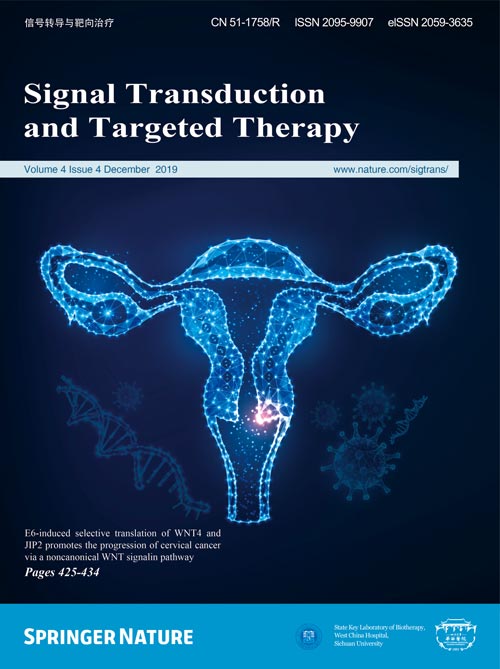Volume 4 Issue 4, Dec 2019:
Article
Tumor-suppressive function and mechanism of HOXB13 in right-sided colon cancer
Binbin Xie,Bingjun Bai,Yuzi Xu
ORCID: orcid.org/0000-0003-2097-0293,Yunlong Liu,Yiming Lv
ORCID: orcid.org/0000-0003-4835-0336,Xing Gao,Fei Wu,Zhipeng Fang,Ying Lou,Hongming Pan &…Weidong Han
Right-sided colon cancer (RCC) and left-sided colon cancer (LCC) differ in their clinical and molecular features. An investigation of differentially expressed genes (DEGs) between RCC and LCC could contribute to targeted therapy for colon cancer, especially RCC, which has a poor prognosis. Here, we identified HOXB13, which was significantly less expressed in RCC than in LCC and associated with prognosis in RCC, by using 5 datasets from the Gene Expression Omnibus (GEO). Tissue sample analysis showed that HOXB13 was differentially expressed between normal and only RCC tumor tissues. HOXB13 inhibited colon cancer cell proliferation and induced apoptosis both in vitro and in vivo. Furthermore, we found that HOXB13 might be regulated by DNMT3B and suppress C-myc expression to exert antitumor effects via β-catenin/TCF4 signals in RCC. In conclusion, the current study is the first to demonstrate that HOXB13 has a tumor-suppressive effect in RCC. High expression levels of HOXB13 are associated with prolonged overall survival in patients with RCC. The DNMT3B-HOXB13-C-myc signaling axis might be a molecular target for the treatment of RCC.
